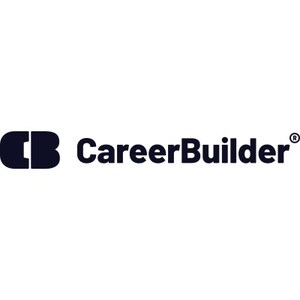One-in-Five Workers Have Trouble Making Ends Meet as More Indicate They Live Paycheck to Paycheck, Reveals New CareerBuilder Survey
--Nearly eight-in-ten workers living paycheck to paycheck, up from 2009--
--One-in-five report they have missed payments on their bills--
--Twenty-three percent started living paycheck to paycheck in 2009--
CHICAGO, Sept. 1 /PRNewswire/ -- As the effects of the recession linger on, one place it continues to have a tight grip is on workers' wallets. Nearly eight-in-ten (77 percent) workers report that they live paycheck to paycheck to make ends meet. Sixty-one percent of workers said that they felt they lived paycheck to paycheck to make ends meet in 2009. Workers went on to say that sometimes they are unable to make ends meet at all, with one-in-five (22 percent) saying they have missed payments on bills in the last year. This is according to a new nationwide survey of more than 4,400 workers by CareerBuilder that was conducted from May 18 to June 3, 2010.
Twenty-three percent of workers said they started living paycheck to paycheck in 2009. As a result, workers said they have made a variety of changes to their living and spending habits to help get by. When asked what tactics they have used since the start of the recession to make ends meet, workers said the following:
- Cut back on leisure activities – 54 percent
- Used coupons or shopped at discount stores – 48 percent
- Drove less to save on gas – 37 percent
- Cancelled cable and other subscriptions – 12 percent
- Used public transportation – 5 percent
"The last 18 months have required some workers to tighten their day-to-day spending and make some adjustments to their financial futures," said Rosemary Haefner, vice president of human resources for CareerBuilder. "Our survey found that six-in-ten workers say that the recession has made them more fiscally responsible. Maintaining a budget is not only important now, but will better position workers – both personally and professionally – for the long run."
Some workers are making ends meet by dipping into their long-term savings. More than one-in-five (21 percent) workers say they have reduced their 401(k) contributions or personal savings in the last year to get by.
Saving money is not an option for some workers, as one-third (33 percent) state that they do not participate in any programs such as 401(k), IRAs or retirement plans. One-in-three (30 percent) report that they don't put any money aside into their savings each month, while 28 percent set aside $100 or less per month for savings and 14 percent save less than $50.
Haefner offers the following tips for riding out the economic downturn and preparing for the future:
Cut back where you can – Takeout coffee, lunches out and other common everyday expenses can make quite a dent in your checking account. Create a spreadsheet to analyze what you spend each month, and once you can see where your money goes, you can more easily see where you can cut back.
Be saving savvy – Even if it is a small amount, set aside money each month for your long-term savings. If you have trouble remembering or fitting into your budget, try setting up an automatic deposit into a savings account.
Maximize your benefits – Talk to your HR department about how you can make the most of the benefits at your organization. Find out if your company offers discounts to stores or for other services, and ask about how you can make sure you've selected the right benefits plans for your budget.
Survey Methodology
This survey was conducted online within the U.S. by Harris Interactive© on behalf of CareerBuilder.com among 2,534 U.S. hiring managers and 4,498 U.S. workers (employed full-time; not self-employed; non government); ages 18 and over between May 18 and June 3, 2010 (percentages for some questions are based on a subset of U.S. employers and/or employees, based on their responses to certain questions). With a pure probability sample of 2,534 and 4,498 one could say with a 95 percent probability that the overall results have a sampling error of +/- 1.95 and +/-1.46 percentage points, respectively. Sampling error for data from sub-samples is higher and varies.
About CareerBuilder®
CareerBuilder is the global leader in human capital solutions, helping companies target and attract their most important asset - their people. Its online career site, CareerBuilder.com®, is the largest in the United States with more than 23 million unique visitors, 1 million jobs and 32 million resumes. CareerBuilder works with the world's top employers, providing resources for everything from employment branding and data analysis to recruitment support. More than 9,000 websites, including 140 newspapers and broadband portals such as MSN and AOL, feature CareerBuilder's proprietary job search technology on their career sites. Owned by Gannett Co., Inc. (NYSE: GCI), Tribune Company, The McClatchy Company (NYSE: MNI) and Microsoft Corp. (Nasdaq: MSFT), CareerBuilder and its subsidiaries operate in the United States, Europe, Canada and Asia. For more information, visit www.careerbuilder.com.
Media Contact: |
|
CareerBuilder |
|
Allison Nawoj |
|
773-527-2437 |
|
SOURCE CareerBuilder
WANT YOUR COMPANY'S NEWS FEATURED ON PRNEWSWIRE.COM?
Newsrooms &
Influencers
Digital Media
Outlets
Journalists
Opted In




Share this article